 My dear family in Christ, By now, you’ve probably heard me plug our new Monday night offering, Living Christianity: a How To, at least a couple of times. But I’d like to use my newsletter column today to share with you what we’ve been doing so far in the first mini-course of this ongoing series. For the past four sessions, we’ve been practicing a process of Theological Reflection that I first experienced back in the 2010s in the Education for Ministry program ~ EfM, for short. EfM is a program administered by The School of Theology of the University of the South, Sewanee ~ my seminary alma mater ~ primarily for lay folks who seek a deeper knowledge of an engagement with their Christian faith, from an Episcopal perspective. And Theological Reflection is a cornerstone of the EfM program. Essentially, TR is a formal, structured process of asking “Where is God in this?” ~ whatever “this” might happen to be. It is based on a few presumptions: first and most important, that God is always trying to speak to us, at all times and in all places; second, that discernment, while always personal, often works best in the context of compassionate and loving Christian community; and third, that the connections between our individual experiences, our shared faith tradition, and the larger culture(s) in which we live are dynamic and interactive ~ that the different aspects of our lives exist in constant conversation with each other. The structure of TR helps us both to tease apart and also to find the links between the various facets and categories of our lives and experiences. Whew! That’s a mouthful, isn’t it? Well, for what it’s worth, it’s the kind of thing that makes much more sense after you do it a few times than it does just reading a description of it. So, what exactly have we been doing these past few Mondays? Well, we’ve been exploring what EfM calls the “microscope method” of Theological Reflection. The process begins with a focal point ~ in this case, someone in the group volunteers to share the story of a personal experience they’ve had in the past. (That’s a rule, actually: present situations that are unresolved and/or ongoing are not allowed for TRs; TR is not therapy, and it’s not designed for folks to work out their problems in the present. So the incident offered for reflection has to be in the past, something that’s over and done with.) The volunteer briefly tells the story of that single experience. The rest of the group may then ask questions for clarification of details ~ just the “journalism questions,” at this point: who, what, when, where, and how. We deliberately hold off from letting ourselves ask what it all meant or trying to interpret the incident in a larger way. After any needed clarifying, we then as a group look more closely at the incident to identify the moment of “highest energy,” the point in the story that is the most intense, compelling, or interesting. That, of course, is subjective, but it’s usually not too hard to come to a consensus. Once we do, that single, individual moment out of the original story becomes the focal point for our TR ~ that’s the bit that we put “under the microscope,” so to speak. Having identified that one moment to focus on, we go back to the original volunteer and ask, “In that specific moment, what were your thoughts and your feelings?” And we list them, separately, on the chalkboard. It’s sometimes tricky to separate thoughts from feelings, but it’s important, because from the lists of thoughts and feelings, we then turn to the other members of the group and ask: “Can you think of a specific time in your life when you had those specific thoughts and those particular feelings?” With that question, we move beyond the limits of one person’s individual experience and start to make more universal connections. Once we’ve had a few minutes to share our own experiences of the thoughts and feelings at hand, we then work together to create an image or metaphor ~ completely independent of anyone’s individual experiences ~ that captures and expresses the thoughts and feelings that we’ve all just connected with. At this point, the hapless facilitator is tasked with, um, attempted to draw said image or metaphor on the chalkboard … whether or not he has any artistic ability whatsoever. Er. (A bit of laughter often ensues.) For the rest of the TR, we explore the world of the metaphor we’ve come up with. In particular, we examine it in term of Creation (life & existence), Sin (destruction & disharmony); Judgment (epiphany & realization); Repentance (change); and Reconciliation (restoration, healing, new life, &c.). It’s in this step that we learn and practice the art of seeing our worlds and us, ourselves, in and through the archetypes of the Christian paradigm. And while this step often results in keen and even surprising insights, I think its real value is in training ourselves, through practice and repetition, to understand and know that all stories are part and parcel of THE story, the story of God’s self-sacrificial love for us made incarnate in Jesus Christ and revealed through the Holy Spirit. But we don’t stop even there! The last portion of the TR calls us to examine the story of the metaphor through four distinct lenses: the tradition, the larger culture, our individual experiences & actions, and our abstract positions or beliefs. We ask, “What does the 2,000 year old Christian faith tradition say about the world of this metaphor?” The answers could be lines of Scripture, verses from hymns, bits of liturgy, even particular doctrines. We ask the same question of the larger culture/society in which we live ~ what does it tell us about the world of the metaphor? It’s really interesting to see the ways in which the tradition and the culture agree … or contradict each other. We go back and reconnect with our individual personal experiences, both the original focal point and other incidents that have come to mind throughout the process. And lastly, we consider whether, through this reflection, any of us has identified a position, belief, or conviction related to the world of the metaphor. It’s important to know that, especially with that last step, the purpose is not to generate some sort of broad consensus that we all share. Often, one person’s “I believe that…” statement with be diametrically opposed to that of another group member. And that is OKAY! Again, the purpose is not to agree; the purpose is to discover! As you can see, it’s a somewhat involved process, but done faithfully (and with a good sense of humor), it bears much fruit. It has been thus far an absolute delight getting to share this practice with our Monday night group. We have a lot of fun along the way, even as we’re doing some serious and faithful reflecting. If you have not yet had a chance to come check it out, fear not ~ we’ll be sticking with Theological Reflection for a few more weeks, at least. We’ll do so partly because we’re having such a great time with it, but also because it’s a practice that offers a stellar foundation for Christian living in general. In addition, I think that after each mini-course we do for this program, coming back to TR afterwards will be a great way to stitch together all of the various things I’m planning for us to explore. Say we do a mini-series on Anglican prayer beads; after practicing that for several weeks, we might do a TR on our experiences of using the prayer beads. Pursued faithfully, Theological Reflection becomes a way of living our Christian faith, even in the seemingly mundane day-to-day details of our ordinary lives. We eventually begin to perceive that, in fact, there’s no such thing as ordinary, that each of us individually and all of us together are extraordinary, miraculous, exquisite creations of an amazing and loving God. So come check it out if you get the chance ~ Mondays at 6:30. Hope to see y’all soon! Peace & blessings, Fr. C  My dear family in Christ, Recently, I re-shared on one of my social media accounts a quote from a colleague and fellow Sewanee alum, the Rev. Boyd Evans, that I thought particularly relevant to the state of the Christian faith in our American culture. To my surprise (and it’s always at least a little to my surprise to discover that every single person on Earth does not in fact see every single thing exactly the same way I do), my sharing of Fr. Evans’s quote led to a bit of controversy in the comments section. Some compelling and interesting points were raised by some good friends who took issue with the quotation, and that indicates to me that there’s some good “faith talk” to be had in exploring these ideas. Here’s the quote from Fr. Evans: “Christianity was never about individual salvation. It is well past time for us to get over this notion. If you don’t believe that your salvation is bound up with your neighbor’s, you have entirely missed Jesus[’s] message.” Now, we’ve talked in a number of different sermons, as well as in our Zoom Bible study and Faith Talk sessions, about the communal nature of the cultures in which both Testaments of Holy Scripture came to be produced. Both the ancient Hebrews and the ancient Greeks put family and community first, and the individual second (or third…). That is, of course, painting with a broad brushstroke; there were exceptions, and “community/family first” was not an etched-in-stone, inviolable law. But the fact remains that it was characteristic of both cultures that one discovered and understood one’s individual identity primarily in terms of one’s family and one’s community. “Who I am” was a question answered in the context of “who are my people” ~ or, better yet, “to which people do I belong?” To be sure, the ancient Hebrews understood things like justice in communal terms: if one individual in my community is the victim of injustice, then my whole community does not have justice, and I, as a member of that community, am likewise a victim of that injustice. The Greeks, as well, placed emphasis on community, as can be seen in the philosophies of, for example, Socrates as recorded by Plato. From such cultural perspectives, the notion that salvation could be something to which an individual could attain, regardless of the state or status of that person’s family or community (i.e., his or her “people”), would have been nonsensical. And yet, in so much of contemporary American Christianity, that does seem to be the way the concept of salvation is presented, is understood, is ~ to a real extent ~ practiced. We tend to commodify salvation, to turn it into a product or service that one person can possess or access without regard for or connection to anybody else. “I am saved; as for the person next to me, who can say? That’s up to God, and anyway, it’s none of my business” seems to be the popular understanding. But a number of my friends took issue not only with Fr. Boyd’s quote, but with the kinds of explanation that I just mentioned, above. One of them responded by asking, “So, individuals don’t matter, then? Can God not save an individual?” More than one person raised the concern about corporate culpability: “Does that mean, if my family or my community is evil and unrepentant, I’m going to go to hell, even if I’m a good and faithful individual, myself?” Personally, I didn’t see anything in the initial quotation to imply either of those meanings, but I have to admit that they are good, valid questions. So, what do we do, then? How do we respond? Well, to clarify, I am not claiming, nor will I ever claim, that there is anything that God “can’t” do. Full stop. I don’t think the question here is about what God can or cannot do. I think the question is, rather, about what it means to be human. What I am saying, and what I believe Fr. Boyd is saying, is that we as human beings do not and cannot even really exist as individuals totally separate from other human beings. Our interconnectedness is not an abstract ideal to aspire towards, but rather a material fact of our present existence. In light of that fact, it’s simply not feasible to consider just my individual salvation one way or the other as if I existed in isolation in some sort of individual vacuum. It just doesn’t make any sense to think about salvation in such terms. And it’s important to point that out emphatically because Western culture for centuries has elevated ~ really deified ~ the principle of individualism so much that it’s now gotten beyond the level of caricature. Western individualism has so distorted our subconscious conceptions and perceptions, of ourselves and of each other, that we’re often in active denial of the fact that we’re connected to each other at all. And that’s a perspective that is so utterly alien to that of either Testament of Holy Scripture that our perspective actively prevents us from understanding the Bible accurately. So again, it’s not about what God can or cannot do in terms of saving people. It’s that we in our culture are simply put unable to read the Bible correctly when left to our own cultural devices. And that is dangerous, to be honest. Likewise, it’s not “the group instead of the individual”; it’s that the individual is subsumed within the group, and the point of Jesus’s salvific atonement is the redemption and reconciliation of all humanity with (and within) God… … whereas postmodern American Christians have a lamentable tendency to view salvation as we view every other “consumable” good in our culture, whether it be good, fashion, housing, education, etc.: as a matter of individual benefit and/or privilege. I.e., “my salvation is my own, and as long as I’m saved, I might feel bad for someone else, but that between them and God, and in any event it ain’t none of my business, and it certainly ain’t my problem.” If that is indeed how we look at salvation, even (especially) subconsciously, then I think we’ll have a devil of a time (that phrase chosen very deliberately!) actually grasping what Jesus it teaching us, and what He’s calling us to move toward and live into. The other thing I think we need to consider is that “bound up with” and “depends upon” are not the same thing, just to clarify further. To say that our individual salvation is bound up with our fellow human beings is not at all to say or to imply that our individual salvation depends upon any other human being. The only One on whom our salvation depends is Jesus. But that same Jesus doesn’t allow us to imagine our own salvation in isolation apart from our fellow human beings. Perhaps that is one of the greatest Mysteries of the faith ~ namely, that Jesus Christ did absolutely and in actual fact go to the Cross and sacrifice His life for me, lone me, an individual sinner, in an intensely intimate and personal fashion … and that is exactly what He did for every other individual, and also exactly how He effected Atonement for all humanity and indeed all of Creation at the same time. Maybe we cannot really understand it fully as limited, individual human beings. Maybe all we can truly, authentically do in the face of such a magnitude of grace is to shout ALLELUIA, ALLELUIA, ALLELUIA! Happy Easter, y’all! Fr. C 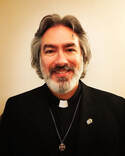 My dear family in Christ, Alleluia! He is risen! The Lord is risen, indeed! Alleluia! We are now well into the great Fifty Days of Easter, and despite some fits and starts (and stops, and restarts), it appears, at least as of today, that we might even be on the verge of Spring. Alleluia, indeed! In the previous column, we considered the shape the disciples were in when the risen Jesus Christ appeared to them after the devastation of the crucifixion. In particular, we looked at their need for recover and healing before they could take up their new vocation as apostles. I mentioned that there were two stories from Scripture that have been on my mind of late: the first was from John’s Gospel, the story of the man by the pool of Beth-zatha whom Jesus asked, “Do you want to be made well?”; the second, our subject for this column, is from the Second Book of Kings, the story of Naaman of Aram and his encounter with Elisha the Prophet. “Naaman, commander of the army of the king of Aram, was a great man and in high favor with his master because by him the Lord had given victory to Aram. The man, though a mighty warrior, suffered from a skin disease. Now the Arameans on one of their raids had taken a young girl captive from the land of Israel, and she served Naaman’s wife. She said to her mistress, ‘If only my lord were with the prophet who is in Samaria! He would cure him of his skin disease.’ So Naaman went in and told his lord just what the girl from the land of Israel had said. And the king of Aram said, ‘Go, then, and I will send along a letter to the king of Israel.’ “He went, taking with him ten talents of silver, six thousand shekels of gold, and ten sets of garments. He brought the letter to the king of Israel, which read, ‘When this letter reaches you, know that I have sent to you my servant Naaman, that you may cure him of his skin disease.’ When the king of Israel read the letter, he tore his clothes and said, ‘Am I God, to give death or life, that this man sends word to me to cure a man of his skin disease? Just look and see how he is trying to pick a quarrel with me.’ “But when Elisha the man of God heard that the king of Israel had torn his clothes, he sent a message to the king, ‘Why have you torn your clothes? Let him come to me, that he may learn that there is a prophet in Israel.’ So Naaman came with his horses and chariots and halted at the entrance of Elisha’s house. Elisha sent a messenger to him, saying, ‘Go, wash in the Jordan seven times, and your flesh shall be restored, and you shall be clean.’ But Naaman became angry and went away, saying, ‘I thought that for me he would surely come out and stand and call on the name of the Lord his God and would wave his hand over the spot and cure the skin disease! Are not Abana and Pharpar, the rivers of Damascus, better than all the waters of Israel? Could I not wash in them and be clean?’ He turned and went away in a rage. But his servants approached and said to him, ‘Father, if the prophet had commanded you to do something difficult, would you not have done it? How much more, when all he said to you was, “Wash, and be clean”?’ So he went down and immersed himself seven times in the Jordan, according to the word of the man of God; his flesh was restored like the flesh of a young boy, and he was clean.” (2 Kings 5:1-14) This passage offers a contrast to the one from John’s Gospel. Unlike the man at the pool of Beth-zatha, Naaman is not physically hindered or prevented from accessing the healing he seeks. Indeed, he is not only given permission from his king to go to a foreign country to be healed, but he is also given a royal letter to give to the king of that foreign country, formally requesting that he be healed. In view of the length of his journey and the size of the retinue he brings with him, Naaman does not need to be asked whether he wishes to be made well. He is not in despair or on the brink of giving up. In fact, circumstances seem to be conspiring in his favor: the Prophet Elisha himself actually sends for Naaman to come see him so that he may be healed (and so he will “learn that there is a prophet in Israel”). No, Naaman has a different problem. His difficulty is not gaining access to healing; his difficulty is trust. When Elisha tells him ~ indirectly, through his servant ~ simply to go to the Jordan River and wash seven times, Naaman cannot accept it. But his reaction goes beyond mere disbelief … he gets angry. In his anger, he inadvertently reveals what is keeping him from trusting Elisha. He first rants that he had thought that, for him, the prophet himself would have come out to do the healing himself. After all, Naaman was an Important Person, the commander of the army of Aram, in Israel with the blessing of his king. And Elisha doesn’t even deign to come out of the house, but sends a messenger, a servant, to tell Naaman what to do? How insulting! Furthermore, he’s astonished that the prescription is just to dip into the Jordan a few times. There are rivers in Aram that are perfectly good ~ far better, in fact, than any in Israel! Why should he have had to come all this way when he could have just as well gone swimming at home (in those better rivers)? And how could something so simply and easy possibly cure such a serious illness as his? So it’s not just a lack of trust, and it’s not just disbelief. It’s also ego. It’s also pride. Elisha has not shown him the deference that Naaman believes he’s due. Nor has Elisha taken his illness as seriously as Naaman thinks the prophet should have; if he had, he would have prescribed a more intricate and demanding ritual to make him clean. But that’s not how healing works. To seek healing is to be called to a place of humility. It is to put our trust, to put ourselves, into the hands of another. It is to relinquish our illusions of being in control. And when the healing we seek is to come from God, it is to accept that we are no more (or less) important than anyone else. Interesting, then, that it is Naaman’s servants and underlings who manage to convince him to go back and trust the prophet, to humble himself and submit to the instructions Elisha gave him. Naaman does so and is healed. The man at the pool of Beth-zatha was neither prideful nor arrogant. The obstacles that had kept him from receiving healing were different than those of Naaman. But the two figures do share something in common: the healing they each experienced came to them in forms that neither man had imagined. At Beth-zatha, Jesus healed the man without his putting so much as a toe into the healing waters that he’d been trying to reach forever. Naaman expected Elisha to come out and make a show of calling on the name of God and placing his prophetic hand upon the wound to heal it. For the man who could not walk, simply standing up seemed a preposterous notion, as merely dunking himself a few times in the Jordan did to Naaman. Can we, today, find a way to accept that the healing God has in store for us will come to us in ways and shapes and forms and experiences that seem equally preposterous? Could we go beyond merely accepting that? Could we perhaps learn to expect it? My dear friends, I think we should expect it! We are here because we are followers of Jesus Christ, the Son of God. All of Scripture, and the whole history of the faith, demonstrates again and again that God’s people must expect two things: 1) God’s gonna show up in the most unexpected places, at the most unexpected times, and in the most unexpected ways; and 2) God’s gonna keep God’s promises, no matter how preposterous or crazy or impossible that may seem to us. We’ve been through a lot as a parish these past four years and change, and y’all had already been through a lot when I first got here. We need some healing. Let us seek healing with the diligence of Naaman, and let us respond to Jesus with the faith of the man at Beth-zatha. And let us continue to expect God to show up, right here, and do great things! Peace & blessings, C+ 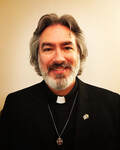 My dear family in Christ, Alleluia! He is risen! The Lord is risen, indeed! Alleluia! Now we live in the time of Resurrection. Alleluia! But what does that mean? What do we do with this incredible, life-changing, world-shattering Truth that we have all just witnessed a week and a half ago? It means that we are now called and appointed to go out and tell the whole world the Good News! And yet … that’s not the first thing that Jesus’s disciples went out and did, is it? No, before they would be ready to take up their calling as apostles ~ as ones who have been sent out ~ they first needed to process the incredible, unfathomable things they had been through. And, let’s be honest, they needed some healing. The road to Calvary, to the Cross and the Tomb, had taken a toll. Even the risen Jesus still bore the wounds of that journey, after all. Last Sunday, we heard how Jesus appeared to the disciples in a locked room where they were hiding, in fear for their lives, in the aftermath of their leader’s brutal execution. We heard how Jesus showed them his still-wounded body, because they needed to see, to know, that he really had died, and that he really had been raised. Jesus even made a second visit to the same locked room a week later because one of them, Thomas, had not been present to receive that healing, to experience that transforming encounter with the risen Lord. Jesus knew that his disciples were not yet ready to be sent out as apostles. He would therefore appear numerous times to various groups of people before finally ascending to the Father some forty days after his Resurrection. Even then, it would still be another ten days before the gift of the Holy Spirit would descend upon them on the Day of Pentecost, transforming them from a band of survivors into the one, holy, catholic, and apostolic Church whose ministry we share today. Clearly, a lot can happen in forty or fifty days. And, in that light, I have been reflecting on the process of healing and just how transformative the experience of receiving healing is for us. Two stories of healing have been on my mind and heart lately, passages that we have not heard recently in our Lectionary. I’ll share one of them with you now, and the other in my next column. The first is from John’s Gospel (chapter 5, verses 2-9): “Now in Jerusalem by the Sheep Gate there is a pool, called in Hebrew Beth-zatha, which has five porticoes. In these lay many ill, blind, lame, and paralyzed people. One man was there who had been ill for thirty-eight years. When Jesus saw him lying there and knew that he had been there a long time, he said to him, ‘Do you want to be made well?’ The ill man answered him, ‘Sir, I have no one to put me into the pool when the water is stirred up, and while I am making my way someone else steps down ahead of me.’ Jesus said to him, ‘Stand up, take your mat and walk.’ At once the man was made well, and he took up his mat and began to walk.” It’s the conversation before the healing, the exchange between Jesus and this suffering man, that is so compelling in this passage. The man had been suffering for many years, and he has been doing everything he can, in his impaired state, to pursue relief and seek healing. Jesus clearly understands fully the nature of the situation, too. Yet the first words that Jesus speaks to this man who has been suffering for so long are: “Do you want to be made well?” The answer should be obvious. Is obvious, in fact. So much so that the man never even bothers to say “yes”; he simply points out to Jesus that he cannot get down into the healing waters on his own. Satisfied, Jesus heals him instantly, taking away the cause of his suffering and, at the same time, obviating his need to get down into the healing waters of the pool. So why does Jesus ask the question? Why that question? The fact that the man does not answer with “yes” might give us some insight. As just mentioned, the man instead describes essentially his own helplessness, his own inability to heal himself. Perhaps that is what Jesus is really asking: “Do you understand that you cannot on your own make yourself well?” If that’s the case, then this whole scene has something critically important to say to us, in our own day and age. Something important to say to you and me, here, now, at All Saints Episcopal Church in Appleton, Wisconsin, USA, in the spring of A.D. 2024. As we face our own challenges in our parish and our community, have we stopped to confront the question Jesus asks: do we want to be made well? We should not jump to answering that question too quickly. Remember that an answer of “yes” seemed even more self-evident for the lame man at Beth-zatha than it might for us, so let’s not take it as given. Let’s take time really to think about it, really to pray about it. Let’s actually put ourselves in the shoes ~ rather, on the mat ~ of the man in the Gospel passage … Are we doing in this moment everything that we can in our present circumstances to get ourselves into a place of healing? Do we have faith that healing is really possible? Are the obstacles to our healing external problems that are beyond our control, or are some of them the result of our own choices? Have we acknowledged, even to ourselves, that we need to be healed? We should note that there is an implied “now” in Jesus’s question: “Do you want to be made well now?” Are we ready to experience the healing that God offers us right now? Likewise, are well ready, in this moment, to put our full trust in Jesus Christ? The lame man in John’s Gospel has bent all his effort, for a very long time, towards getting down into those healing waters in the pool. When Jesus offers him the healing he has long sought, the man seems to think that Jesus is offering to help him get into the pool. Jesus’s healing takes a radically different form, one the man could scarcely even have imagined as a daydream: Jesus just tells him to get up and walk. And the man has the faith to do just that, despite his long-held expectations of what healing would look like for him. Do we have that kind of faith? Do we even think of faith in that way? If not, can we imagine what our faith community might look like if we did? Peace & blessings, C+ 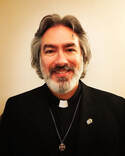 Follow-up to our Family Meeting In both our Annual Parish meeting last January and our more recent Family Meeting on the 17th of this month, we gathered together as a community and shared some wonderful food and fellowship. We also first began, and then continued, the process and looking closely and honestly at what’s working in our parish … and at some of the things that aren’t. We’ve named and appreciated the abundance of resources, gifts, and blessings that we enjoy as a worshipping community. We’ve also begun some important conversations about the significant challenges we yet face as we move forward into 2024 and beyond. And we’ve started to name out loud and share with each other the things we love, the things that frustrate us, the possibilities that excite us, and the treasured aspects of our church community that we fear to lose. The meeting itself felt a bit uneven, at times; that’s to be expected when there are different perspectives to be shared and discussed, all the more so when we’re talking about something ~ our very parish family! ~ that we all love so deeply and want so passionately to see grow and thrive. A little tension, in that light, is a wonderful indicator of the fact that we all care so intensely about this parish, this precious thing that we all get to be part of and which has been entrusted into our faithful care. Three huge takeaways from these meetings for me have been 1) the fact of deferred maintenance, 2) the need for deep healing, and 3) the energy and enthusiasm that spontaneously welled up at the March meeting during the small-group breakout conversations. I’ll have more to say about deferred maintenance and deep healing elsewhere. For now, I want to emphasize that, overall, there was a clear, vocal mandate from the assembly that we need to take action. In response to that mandate, I made a promise that, coming out of this latest meeting, I would, in consultation with the parish leadership, come back to y’all with a short-term action item, a middle-term action item, and a longer-term goal for the parish. The Vestry indeed has taken up that work as of our March meeting. In the short-term especially, however, we need to capitalize on the incredible energy that came up in the small-group discussions on the 17th. I am therefore going ahead and sharing my proposals for two areas of action and a goal for the parish … Short-term action: In the immediate short term, it’s clear that we need to create many more face-to-face opportunities for folks to engage in focused conversation together in small, informal groups. Obviously, the major challenge is finding times when people can actually get together. To that end, I propose that we use the two midweek time slots already on our calendar ~ Tuesday mornings at 9:30 and Wednesday evenings at 6:30 ~ for a variety of offerings, including but not limited to Holy Eucharist. While we need to make sure that we continue to offer midweek Eucharists at least one Tuesday and one Wednesday in each month, on the other days we could host in-person Bible studies, Christian formation sessions, Anglicanism 101 classes (both for newcomers and for folks who want a refresher or just to know more about our particular flavor of Christianity), discernment workshops (not just for discerning calls to holy orders, but for discerning any aspect of God’s will for your life). For folks who are not free on Wednesday evenings, I propose to offer Monday evenings, as well, for any or all of the above. But we don’t even have to limit these small gatherings to the things I just named. Circle Songs, for example, will be moving from Sunday afternoons to a weeknight. We could other evening gatherings for shared artistic expression, acoustic instrument improv sessions, and/or respectful conversations about the things going on in our world that … challenge our faith. We could have small group prayer gatherings, meditation workshops, lectio divina, etc. One thing I really want us to get going is a support group for folks who are struggling with having faith at all, especially in these challenging times. Something like “Agnostics Anonymous,” a place where it would be utterly safe to talk out loud about what you believe … or don’t believe. It would have to be a covenanted, confidential group, and I as priest would not be allowed to visit, except by express invitation of the group in advance, so folks would be completely safe to be honest and open. Middle-term action: In the slightly-longer short-term ~ i.e., the middle-term ~ we’ve got several plans already underway: to have a presence at the Farmer’s Market this season; to participate in Appleton’s PRIDE event again with our own booth/table/tent, as we did last year; to host musical concerts to which we can invite the larger Appleton community; and, on a somewhat related note, to host the first of what will hopefully become a series of coffee house style “open-mic nights” wherein our folks can showcase their many and varied artistic talents and original creations ~ the hope is that such a thing might grow into a real community event beyond just our own parish. Please stay tuned for more information as these ideas come closer to fruition. And please let the office, the Vestry, and/or me know of what other ideas you have for community engagement! Goal: “All Hallways Bright and Beautiful” For a concrete, tangible goal, we should commit to brightening and beautifying our hallways and corridors by Advent 1, 2024. Our sanctuary and chapel worship spaces are already gorgeous; our hallways, especially the long corridor leading from the Washington St. entrance, not so much. Between the bare cinder block walls, the dark green tiled floors, and the dim fluorescent lighting overhead, these hallway spaces, while comfortable to folks who are long familiar with them, are not as inviting and welcoming to new folks visiting our spaces for the first time. I’m currently working with our sexton, Andrew, to see how we can make the overhead light fixtures brighter. But given the artistic abilities and talents for craftwork of the people of this parish, I am convinced that it we put our heads together, roll up our sleeves, get creative, and get to work, we can transform our hallways into warm and welcoming spaces that make people want to come inside and stay with us. Artwork, quilts or tapestries, murals, designs ~ we could do all sorts of things with the cinder block walls. Donations of rugs and carpets could give the hallways a much more welcoming feel, though of course we would have to be careful to make sure such things don’t become obstacles or safety hazards. Lamps and table displays here and there, in addition to brighter lights overhead, could transform how our spaces feel dramatically. But that’s just off the top of my own limited head, so to speak. I’m excited to hear the creative solutions that you all come up with! And as always, I encourage ~ no, I implore ~ you to reply with your own thoughts, ideas, concerns, and solutions! Whenever you have something to share, a question to ask, or an idea for the parish, please say something to me; to Pete Gilbert and/or Stephanie Gadzik, our Junior and Senior Wardens, respectively; Emily Gilbert, our parish secretary; and/or any member of our Vestry. We all not only want but also need to hear from you! After all, we’re all in this together. Peace & blessings to you all! Christopher+ 920.266.9262 [email protected] 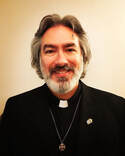 PARISH FAMILY MEETING 17 March 2024 Prayer for Spiritual Growth Gracious Father, We ask spiritual growth for ourselves, our families and friends, and especially for our family of All Saints. Grant us growth in understanding and willingness to be your Body in this world. Empower us to live the mission of Christ: to preach, teach, heal, and make disciples. In joyful thanksgiving for the blessing of your presence in our lives, compel us to share you with everyone we meet. May our numbers increase, our commitment deepen, our lives be joyfully yours. Make us a God-centered people. In Christ’s name we pray. Amen. My dear family in Christ, As many of you already know, this coming Sunday, we will have a single worship service at 9:30, followed by a shared potluck meal, followed by a conversation ~ hopefully several conversations, actually ~ picking up where we left off in our annual parish meeting at the end of January. Lots of folks have, understandably, been asking what the plan is, not only for Sunday’s meeting, but also for the life of our parish moving forward. The first question is a bit easier to answer than the second. So here’s a rough overview of the plan for Sunday: After we’ve moseyed down from the Sanctuary to Kemper Hall and had a chance to get a bite to eat, I’ll call the (slightly) more formal portion of the gathering to order. We will share a prayer (the Prayer for Spiritual Growth, above), and I’ll offer a brief presentation to clarify and expand upon some of my remarks from the January meeting, including additional insights many of y’all have shared with me since that meeting. We’ll also go over some “ground rules” to make sure that everyone who wishes to speak gets multiple opportunities to do so, that no one falls through the cracks or gets “talked over,” and that the whole environment feels safe, respectful, open, and welcoming for everybody. From there, we will break out into small groups (4-6 people per, depending upon how many folks attend the meeting) to explore a few focused questions in more depth and detail. After each small group session, we will come back together to share (voluntarily, of course) any insights, ideas, concerns, questions, etc., that came up in the breakout groups. After two breakout sessions and group sharings, we’ll conclude with a full-group conversation to recap what we’ve discerned, and to identify 2-3 short term goals for action ~ in other words, we’re going to go ahead and decide specifically what to do next, coming out of this gathering. For homework: Here’s an assignment for you, to help you prepare for Sunday ~ go ahead and be thinking about the questions we’ll be exploring in our two breakout sessions (listed below). The more thoughts you can put together in response to these prompts beforehand, the more productive our time together will be. Breakout Session I Questions:
Breakout Session II Questions:
I’m very much looking forward to our time together this Sunday! See y’all soon! Peace & blessings, Christopher+ 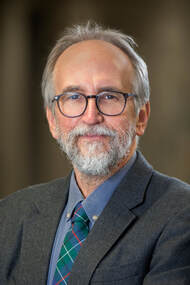 I’m Pete Gilbert, a random parishioner and your newly-elected Junior Warden. You may wonder (as I do): “what the heck does a Junior Warden do?” Mostly, the Junior Warden “works closely with the Rector and Senior Warden in providing overall leadership in the congregation.” Here at All Saints, the Junior Warden also coordinates “church property-related issues.” That means that when you notice that a faucet’s leaking or it’s too cold in the church or maybe we should paint the door to the belltower or there’s a cracked window in Kemper Hall – you contact me. If you see something, say something; I’m in the church directory. I’m also in regular communication with the Church Secretary, if it’s easier to tell Emily. My job then is to work with the many smart and talented people around this joint to see what we can do about our maintenance and upkeep issues. As you can imagine, I already have a long list of projects that need work, but the goal is to do what we can to make our beautiful building and grounds the best they can be. Does that sound reasonable? In any case, as always, I’m grateful for all you do for All Saints. 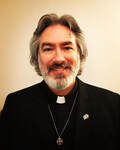 SAVE THE DATE: 17 MARCH 2024 ~ PARISH FAMILY MEETING SINGLE, COMBINED SERVICE @ 9:30; MEETING TO FOLLOW READ ON FOR THE WHAT & THE WHEREFORE: The liturgical season of Lent is very nearly upon us, y’all! Lent is a time in the Church year distinguished by a special focus upon sin (both our individual, specific sins, and also the general sinfulness of the human world in which we live), repentance, penitence, penance, self-denial, as well as study of the Scriptures and the Christian Tradition. It is sometimes considered to be a sad season, but that is mainly due to our fondness for our favorite sins and the discomfort we feel when we name and face our sins and feel called to repentance and penance. Which is too bad, really, because above all, Lent is a season of hope. Hope of a turning, a change of direction in our lives. Hope of reconciliation with people from whom we’ve been come distanced or estranged. Hope of restoration to grace and holiness through prayer, fasting, penitence, and forgiveness. Lent can be a time of mourning; it is certainly a time of letting go; more than anything, it is a time to recognize that one’s old life is over, and that the only way to new life is through the Cross. Well, that sounds very poetical, doesn’t it? In reality, it’s going to be hard, messy, probably painful, certainly filled with disagreement and tension, but also peppered with grace, healing, reconciliation, and love. In other words, it’s pretty much gonna be a family affair. And that’s why I’m calling our next parish-wide gathering, on 17 March 2024, a “Parish Family Meeting.” We’ve got a lot to talk about. A number of hard decisions have to be made, both short-term and long-term. Along the way, it is all but guaranteed that something (or someone) will make each of us feel angered, or hurt, or baffled … But I’m also betting that something (or someone) will make each of us laugh unexpectedly, or perhaps cry, as we feel fully seen and embraced. Just like family. More details will follow as we plan the logistics of the meeting. And there will be structure, as well ~ we’re not just going to have a free-for-all! So be on the lookout for forthcoming announcements. Meanwhile, put Sunday, 17 March 2024, on your calendar and please plan to attend. We’ll do the same thing we did for the Annual Meeting: a single, combined service at 9:30 with the meeting to follow in the parish hall. I hope that this meeting will be the first of several that we’ll hold throughout this year as we seek to discern God’s will for All Saints and to walk the Way of the Cross together. In the meantime, please continue to reach out to me via phone, text, and/or email; let’s keep the conversation going! Peace and blessings in the name of our Savior, Jesus Christ, C+ 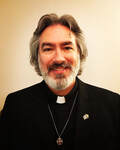 My dear family in Christ, As I sit down to pen my first newsletter column of 2024, the blur of Advent-Christmas-New Year’s-Epiphany is already behind us. Just barely behind us, is how it feels to me, and yet we’re already on the threshold of our Annual Parish Meeting. The nature of our Church calendar is that by the time the dust starts to settle from all of the end-of-year liturgies and services and celebrations and gatherings … we’re already a pretty good ways into the new secular year, almost before we know what hit us! We’ve got a lot going for us as a parish as we move into 2024. Thanks to the incredibly hard work of your outgoing Vestry and to the devotion and faithful discernment of all of you, we enter this new year with a much clearer understanding of who we are as a welcoming, inclusive, and affirming community of faithful, Episcopal (Anglican) Jesus-followers, as articulated in our formal Statement of Direction. As an organization, we adopted a set of parish By-Laws, for the first time in not-so-recent memory, to structure how we do what we do, in keeping with the canons of the diocese and the national Church. Thanks to your extremely generous support, we have managed, even in times of increasing austerity, to decrease the deficit in our operating budget, bringing us much closer than we’ve been previously to a truly balanced budget. Through it all, we have continued to welcome new folks into our parish family. We have continued to celebrate the holy Sacraments that are the heart of our Christian faith tradition. We have continued to honor and worship our God and to seek and serve Christ in all persons, guided by the Holy Spirit. All of that is true. It is also true, though, that we face a number of seemingly daunting challenges in 2024. It is a fact that we are a smaller parish after Covid than we were before the shutdowns necessitated by the pandemic. We have fewer people and tighter resources with which to be the Body of Christ in Appleton, Wisconsin. The work that we did last year to discern who we are as a community of Jesus-followers was monumental, but it was truly only the first step of the discernment work we yet must do. Now that we have a clear vision of who we are, we face questions of vocation—we must, in prayer and faith, both individually and in community, seek to understand the specific work God is calling us to do, in this place and at this time. We’ve confronted the question of who we are; the next questions are about our mission: what are we to do? Some of these questions will be hard to ask, and even harder to answer. Such discernment will require us to face our own fears, hopes, and expectations—both conscious and subconscious—about our beloved All Saints Parish. As I alluded to in a recent sermon, our parish is not now what it has been in the past. Moreover, things cannot remain as they are at present. Together, however, with our shared faith, commitment, and love, I believe we can embrace the new life that is even now being stirred up among us by the Holy Spirit. It’s scary—I’m not going to lie about that. But so is every great, exciting, life-changing opportunity. I believe that God loves All Saints at least as much as we all do. And I am very much looking forward to finding out what our God has in store for us in 2024. And I really, really want to hear from all of you as we begin this next leg of our spiritual journey together. Please “holler at me,” as we say down South, and let me know what you’re thinking, what you’re feeling, what you’re excited about, what you’re afraid of, what you hope to see as this new year unfolds. Email me. Call me or text me on my Pastoral line--it’s NOT just for emergencies, y’all!--and let’s keep the conversations going, both before and after our Annual Meeting on the 28th. I hope to hear from you all soon! Peace and blessings, my dear friends, Christopher+ 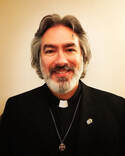 My dear All Saints family, Here we are in the third week of Advent, careening towards 4th Advent this Sunday morning. And then, by some miracle of quantum mechanics and “timey-wimey stuff” (for any Dr. Who fans out there), we’ll rocket through the fourth week of Advent in a mere few hours, arriving at Christmas by 7:30 that evening. Whew! So, then, the important question is … what do you want for Christmas? : ) The older I get, the harder that question has become to answer. Early on, it was pretty easy: “Not socks!” After A.D. 1977, things got a little more specific: “Star Wars toys, please ~ any Star Wars toys!” These days, my priorities seem to have shifted a bit. I remember with no small degree of longing that time when my sister and I gave our father ~ at the time, the Academic V.P. of a community college in southern Georgia ~ a clear glass, empty jar with a rather artistic hand-made label which identified the contents as “PEACE & QUIET.” In point of fact, as my Christmases have begun to add up, I’m less and less interested in objects at all, however cool or clever such objects may be. In part, that’s probably because, having thrown myself into guitar as an obsession hobby at the age of 15, my “toys” have become way too expensive for Christmas presents… But whatever the reason, today I am much more interested in exchanging those gifts which are even harder to package than peace & quiet: things like time ~ moments with those around me that can be truly content, wordless, utterly un-hurried; things like connectedness ~ opportunities to be with the people whose presence, whose existence, nourishes and rejuvenates me, without having to do anything; things like love ~ not to put too fine a point on it. St. Paul’s famous meditation on the nature of love is oft associated (rightly) with weddings, but it applies here (and everywhere) with just as much relevance: Love is patient; love is kind; love is not envious or boastful or arrogant or rude. It does not insist on its own way; it is not irritable; it keeps no record of wrongs; it does not rejoice in wrongdoing but rejoices in the truth. It bears all things, believes all things, hopes all things, endures all things. Love never ends. (1 Cor. 13:4-8a) Y’all, I can’t think of anything more profoundly countercultural in these present days of stress, strife, anxiety, hurry, conflict, uncertainty, isolation, loneliness, despair, loss, and pain … than love, the kind of love that rises to the definition St. Paul offered to the believers in Corinth. May the gift of this love abound for you all this Christmas, as we prepare to receive yet again the greatest gift this world has ever seen, the birth of our Lord and Savior, Jesus Christ. What more could we possibly ask for? Merry Christmas, everyone! Christopher+ 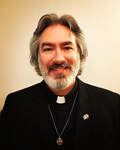 My dear family in Christ, In my sermon this past Sunday, the first of Advent, 2023, I mentioned in passing that the day marked not only the beginning of a new liturgical season, and not only the beginning of the new Church year, but also the beginning of my fifth year at All Saints as your rector. Though I hadn’t put much thought into this anniversary at the time, over the past few days it has occurred to me that the moment deserves a bit more reflection. It’s been, after all, an “interesting” four years ~ in just about every possible sense of the word. Advent 1 of 2019 was, as I recall, rather colder and snowier and just more winterier (that’s a word now) than last Sunday was. An abrupt, if educational, introduction to life in the Upper Midwest. The people (y’all, that is) were on the other hand extraordinarily warm. I remember feeling immediately welcomed into this community. So many of you made it a point to come by the office, invite me to lunch, to find some hospitable way to get together so we could start getting to know each other. And I was very much looking forward to working my way through the whole parish that way as I began to find my footing here (always tricky in wintertime, as I’ve since learned…) Of course, that’s about the time that Covid hit us. I know I’m leaving out a lot, but, honestly, my memories from December, 2019, to early March, 2020, are a bit blurry. Things moved so quickly … from my first Sunday, through the season of Advent and into the Christmas season, to Epiphany, and then to officiating at my first annual parish meeting at the end of January … that I hardly had time to start learning my way around town before February. We had a retreat for the new Vestry on the second Saturday of March, and later that afternoon, I got word from the diocese that all our churches were to be closed to in-person worship, starting the next day. So then we stayed home for almost two years. There is no need to recount, and I certainly do not want to relive, our experiences of being shut down and sheltering in place, of translating “church” into an online experience, of partially reopening, of taking three steps back for every one step forward. Enough to acknowledge that we probably have not even catalogued all the various scars we all acquired during the worst of the pandemic, much less having started to heal from them. Rather, as I reflect on this anniversary of my joining your community, I’d simply like to share a few observations ~ my first impressions, really, of All Saints, which the past four years have demonstrated to be true. First, the people of All Saints parish are a deeply faithful people. Even before I got here, I realized that this must be the case ~ Bishop Matt had explained some of the history of the parish to me as I was discerning a call to come here, which, as many of you remember first-hand, was “a lot much.” A less faithful, less devoted, less loving congregation would not likely have survived the things that this parish has endured, and that was before Covid was a thing. As I’ve gotten to know more of y’all individually these past few years, I have been privileged to see how deep your faith goes here. And it continues to inspire me each week, each day. That is not to suggest that All Saints is without problems or challenges. We were facing a need to revitalize and grow our parish family even before Covid hit. Today, we are smaller in number than we were when I first arrived. But I am not distressed by that fact: for one thing, a number of other parishes in the diocese ended up having to close as a result (either directly or indirectly) of Covid, and we’re still here; for another thing, even during the worst of the shut-down, we still managed to add new people to our community; and for a third thing, what we might at the moment be lacking in numbers, we more than make up for in faith in Christ and devotion to this parish family (see above). Lastly, when I first got here, it struck me that there was not a single challenge facing this parish that was not simply a local version of one or another of the crises facing the entire Episcopal Church across the country. In other words, it seemed to me that every obstacle, issue, or challenge before this parish was a smaller-scale instance of the obstacles, issues, and challenges before the entire denomination as a whole. Four years in, I believe that first impression has been confirmed over and over. And while it may be disheartening to realize that our whole denomination if facing some serious challenges at present, it is comforting to me to know that there’s nothing wrong with All Saints that is specific to All Saints. Our difficulties are systemic and large scale, and are not due to any peculiar weakness or failing on our part. Despite my own weaknesses and failings, you all have welcomed and supported me in ways and to a degree that is deeply humbling, and you have welcomed my family into your own with love and enthusiasm. I know I can speak for them when I offer my ~ our ~ most sincere gratitude. We came here, literally, because God called us to come here. But y’all have made answering that call both a joy and a blessing. It is a privilege to be able to share ministry and the love of God with y’all ~ thank you so much! Peace & blessings, Christopher+ 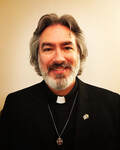 “Followers of The Way” In the interest of beginning to set the stage for the impending season of Advent, let’s reflect upon some of the most foundational terms and concepts from our shared religious tradition as 21st century Western, Anglican/Episcopal, American Christians … and let’s start with the most basic, the most fundamental term of all: religion itself. So, what is religion? Many of you know that I am a cradle Episcopalian; I grew up in this Church, as I grew up in the United States and in the South, in the downward slope of the 20th century. All of those factors have shaped who I am and how I see the world around me, the things I presume to be true on a subconscious level. So I grew up thinking that “religion” meant “church” and “worship” and that it was something that happened “occasionally” … once or maybe--maybe—twice a week, at most. On a side-note: I also grew up as the original Star Wars trilogy was first dominating popular culture, and I remember being rather confused when the characters in those movies referred to the Jedi order as a “religion.” What? I thought. They don’t go to any church! They don’t have any rituals or hymns or anything! How can that be a religion? I think perhaps if I had grown up in and around the Mediterranean Sea in the centuries immediately before, during, or immediately after the earthly ministry of Jesus Christ, I might have inherited a very different notion of what religion is—and then maybe the Star Wars reference wouldn’t have confused me so much. You see, there is an ancient understanding of religion that is much bigger, much deeper, and much more interconnected than modern American pop culture might have us believe religion should be. This ancient concept of religion goes beyond defining religion as (merely) a philosophy or a set of teachings (although many of the philosophical schools in ancient Greece would strike us today as having more in common with religion than with academia), or even a set of rituals or ceremonies. The ancients in many cultures (including those of what we now call the Near East) defined religion as a complete way of living. And that included many things which we, as modern Americans, tend to separate into distinct categories: philosophy, history, culture, family & kinship, metaphysics, food preparation & diet, law, biology, astronomy, ethics, worship, politics, poetry & literature, subsistence & economics, etc. All of these aspects of human existence were integrated into one interconnected world view that shaped every action, every choice of how to order one’s life, from sunrise to sunset, so as to live in right relationship with each other and in right relationship with the heavenly realm. The followers of religious teachers were called “disciples” because to follow such a teacher meant to be “disciplined,” to live one’s life deliberately so as to emulate the teacher as closely as possible. Now, to be fair, I don’t think for a minute that everyone in the ancient world lived such a dedicated and disciplined life. In fact, most folks probably didn’t. But for someone to go to the trouble of converting to a particular religion probably did mean that such a person would be taking on a new way of living, and therefore would be making a much bigger life-change than we today would associate with simply joining a church. We know that in both Jewish and early Christian communities, there were folks who hung out on the edges of those groups—interested in the religion, but not fully committed to that total life change I’m talking about. But these were the folks who were not yet converted—they had not yet accepted, for example, the circumcision or baptism required for full membership in those groups. For the folks who had undergone those rituals and accepted full initiation into those groups, however, I think it was much harder at that point for them to be, well, casual about their religion. I’ve even read descriptions of ancient Christian baptisms in which the candidate is asked if he or she is ready “to die with Christ”; if the answer is yes, then the candidate is plunged into darkness as well as being plunged underwater—without knowing what’s coming next. After being immersed three times (in the name of the Father, the Son, and the Holy Spirit), the newly baptized person is then brought up into the light and partakes in his or her first Eucharist—another mystery that he or she was not allowed to have any knowledge of prior to baptism. It is intriguing to consider what modern American Christianity might look like if that were the way we all had to come into the faith, is it not? Well, we need not go to such extremes. Still, what I’m inviting all of us to contemplate this fall as we approach Advent is this: to what extent does our Christian faith really pervade and infuse our lives? Are we Christian primarily on Sunday mornings, and maybe for a little while on Tuesday mornings or Wednesday evenings, perhaps? Are our worship services and rituals exist as ends in and of themselves, or do they serve as a means to some greater end? These questions are not meant to be rhetorical; they need answering, and each Christian must answer them for himself or herself. But they are neither meant to be answered quickly or superficially. Rather, they represent opportunities to spend time in focused prayer and in conversation with God. The Christian religion is about ordering our lives, day to day, week to week, year to year, moment to moment, so that we are constantly seeking encounter with Christ: in the inmost depths of our being; in relationship with each other; in sacrament, prayer, and meaningful engagement in the world; in both tranquility and transformation. Christian faith is not merely a set of philosophies or teachings (although the teachings are crucial!); it is meant to be a way of life. The first Christians called the religion The Way for this reason. And they called themselves followers of The Way. Deep study of Scripture, regular participation in corporate worship and individual devotion, and the ongoing attempt to ever mindful of Christ within us, Christ in others, and Christ in the world around us … these are the building blocks of The Way, and it is the mission of the Church—of all baptized Christians—to demonstrate this way of living in the world, to invite everyone to share in it, to teach it, and to support each other in our efforts to come closer to Christ and to live out our faith in the world. It ain’t easy. It was never meant to be. That’s why we need each other on The Way. Christopher+ 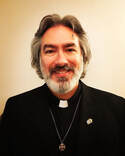 My dear family in Christ, The Great Wheel of the Christian year continues to turn, and we find ourselves come round to another fall season. While it can be tempting to think of Autumn as a time of endings, especially as once-green leaves flare to brilliant colors and then drop to the ground, leaving bare limbs exposed, it is also a time of anticipation and beginnings. A new school year has begun, bringing new patterns & routines, as well as new opportunities and challenges, to students of all ages and their families. Many folks are now back home after their summer travels, ready to start back to business, and life, as usual (whatever “usual” or “normal” might be, these days…). And here at All Saints, we’ve returned to full choir & music at our 10:30 Sunday services. We’ve also begun new Sunday School offerings for children aged 5 and up, in two different age groups, as well as more casual adult-forum style Sunday School opportunity for everyone between services (c. 9:40-10:20) to stop by the Palmer Room and play “stump the priest” with your best faith-related questions. Speaking of Sunday mornings, as we welcome both newcomers and familiar faces into our in-person worship services, let’s of course be mindful of what we say and how we say it; even the best of intentions can result in saying things that can have a different effect than what we intend. In our genuine delight to reconnect with someone we haven’t seen for a long time, we don’t want to end up emphasizing just how long it’s been and risk accidentally scolding or shaming the person for having not been in church for a while. None of us does such a thing on purpose, but even unintentionally it can still be hurtful. That said, it has been absolutely wonderful to see our in-person worship participation continue to grow ever since we were finally able to reopen fully after the worst of the Covid restrictions were lifted. Our 8:30 Rite I spoken service, especially, has not only rebounded but increased its average attendance beyond what it was before Covid. Thank you to all you regular Rite I folks for your dedication. The 10:30 Rite II service continues to grow, as well, and I look forward to that continuing now that full choir and Sunday School offerings are back on the “menu,” so to speak. We continue, of course, to encourage online participation in both our worship services and our Christian formation/adult Sunday School offerings, as well. Many of our faithful members depend upon our online services to take part in our shared parish life and to stay connected with the rest of the All Saints family. These ministries are vital to the life of the parish and will continue to be a big part of what we do going forward. At present, our 10:30 Sunday Eucharist is livestreamed each week—huge thanks to our new crew of tech ministers who’ve stepped in to keep our Sunday livestreams going, by the way!—and we continue to offer an online Bible study (Mondays @ 11:30) and Christian formation series, Faith Talk (Thursdays @ 12:30), via Zoom. I post the Zoom links for each session on the All Saints Facebook page each week, as well as emailing the links to a list of folks who’ve told me they’re interested in these Zoom offerings. (If you’d like to be added to that email list, please reach out to me via the office and let me know!) Whew. That’s just the stuff that’s currently going on or coming up in the immediate future. We’ve got some more exciting ideas kicking around behind the scenes, too—look for future updates with more info as we move further into the fall season. Before we know it, we’ll be through the liturgical season of the “long green” (the season after Pentecost) and ready to begin in earnest the eager anticipation of Advent, looking ahead to the birth of Our Lord at Christmas. It continues to be my great privilege to get to be part of this incredible parish family. It’s an exciting time to be at All Saints, and I truly believe the best is yet to come. God bless you all, and Happy Fall! Peace & blessings, Christopher+ 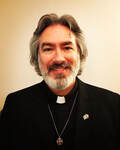 Liturgical Note for the Day of Pentecost & the Season after Pentecost One of the seven principal feasts of the Church (BCP, p. 15), The Day of Pentecost takes its name from the Greek Πεντηκοστή (Pentēkostē), which translates as “fiftieth”—the fiftieth day after the Passover. For Christians, Pentecost marks the day the Holy Spirit came down and rested upon the Apostles like tongues of flame, as described in the second chapter of The Acts of the Apostles. We acknowledge this event as marking the birth of the Church as we know it, and we celebrate the occasion of its remembrance with red vestments and altar hangings. It is likewise traditional in many Episcopal parishes for the congregation to wear red, as well, when attending worship on the Day of Pentecost. As the final day of the season of Easter, Pentecost fulfills the promise made by the Risen Jesus prior to his Ascension—that, when he went to the Father, he would sent the Holy Spirit to us, to complete his work in the world and to teach us all things, to be our Helper and Advocate. In our liturgical year, then, the Day of Pentecost is a point of transition; even as on Easter Sunday we move from the season of Lenten fasting to the season of Easter feasting, on Pentecost we move from the time of the Resurrected Christ in our midst to the time of his reign in Heaven, and the time of the Holy Spirit resting upon us, abiding within us … and lighting us up! The segment of the liturgical year which follows the Day of Pentecost is known, perhaps unsurprisingly, as the Season after Pentecost; it is also called “ordinary time.” That is not at all to suggest that it is a season of bland, pointless, mundane normality. No, the term “ordinary time” refers to the regular (“ordered”) progression of Sundays from Pentecost to the first Sunday of Advent, when we begin a new liturgical year. It is time devoted neither to a specific feast nor to a particular season in Christ’s earthly life; green is its traditional liturgical color. Personally, I find it remarkable that, for Christians, “ordinary time” means the time of living our lives in the presence and loving embrace of God’s Holy Spirit. It should indeed be “ordinary” for us (in both senses of the word) to be continually inflamed and illumined by the dwelling of the Holy Spirit in our minds, our hearts, and our souls. Is not that the very meaning of one of the names of our Lord and Savior? Emmanuel, God is with us. (There is, by the way, also a shorter period of ordinary time between Epiphany and the Tuesday--Mardi gras—before Ash Wednesday, which marks the beginning of Lent, but the Season after Pentecost is the “long green.”) — Christopher+ 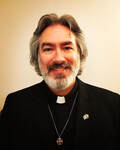 My dear family in Christ, HAPPY EASTER!!! (Alleluia, alleluia!!!) Surely, we’re not tired of shouting that acclamation out, yet, right? We are now three Sundays into the great Fifty Days of Easter, and I hope that this blessed season is bringing you light and joy as we continue to celebrate our Salvation in the resurrection of Jesus Christ, our Lord. It certainly doesn’t hurt that we’ve had a few days of (what this Southern boy would call) actual Spring, in and amongst the lingering cold snaps and persistent precipitation. Despite the fluctuations in the weather, it is undeniable that light and life are returning once again to our world. In other news of miracles related to the chilly temperatures that continue to nip at our heels, you’ll be pleased, I suspect, to know that the boilers in our building are back online! Our resourceful parish secretary reached out to the folks who’ve been servicing our boiler system, and in the span of an afternoon, they had us back up and running. Hallelujah! (And thank you, Emily!) Meanwhile, the Vestry and I are continuing the work which led up to the two historic votes that came out of our March meeting—the adopting of a new, clearly-articulated Statement of Direction for our parish, and, in keeping with that stated direction, the approval of same-gender marriage. The next phase of this work is to make sure that everything about us as a parish clearly and visibly and consistently proclaims who we are and the community God has called us to strive to be. We’re taking a look at signage, our website, our internal and external communications … and also planning events that will bring us together, help connect us with the larger community outside our walls, and give us opportunities to celebrate the grace and the blessings God has given us in this amazing church family that we share. It’s been a long, dark winter in many ways. But new life is springing forth all around us, amongst us, and within our parish. It’s a very exciting time! May God continue to bless you all, and HAPPY EASTER! Alleluia, Christ is risen! The Lord is risen, indeed—ALLELUIA!!! Yours always in Christ, Christopher+ 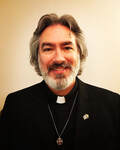 My dear family in Christ, HAPPY EASTER!!! (Alleluia, alleluia!!!) We walked together through the penitential time of Lent and the intense, often uncomfortable events of Holy Week, into the glorious joy of that first Sunday of Resurrection … And now here we are, four days into the great fifty days of Easter Season. It’s something I love deeply about our Episcopal tradition: the highest, holiest times of the Church year, Christmas and Easter, are not merely single days, “one-and-done.” We get to enjoy entire seasons—twelve full days of Christmas, and 50 full days of Easter! What a gift. What a blessing! Speaking of gifts and blessings, as we decompress from the intensity of Holy Week and the Triduum, we need to offer our deep gratitude and sincere thanks to everyone who helped to make our worship together so rich, so powerfully meaningful and beautiful this year: Matt Kierzek and Carol Jegen in selecting music and leading the choir and playing the organ, Eric Neiswender with the magnificent offering of the Exsultet and Karl Breice with those gorgeous recorder melodies, Ken Bozeman for the wonderful piano music, and the entire All Saints choir … all of y’all straight up outdid yourselves this year. The music you provided not only enhanced our worship but also shaped it. Indeed, your music, and your voices raised in song, were acts of worship. Thank y’all so much for bringing us all more deeply into the worship of Our Lord. Sarah Gilbert, Catherine Neiswender, Suzanne Fischer, Nancy Krueger, Cathy Twomey, and everyone on the Altar Guild—amazing job through all the changes & liturgical requirements of the past week! Thank you all for making sure everything was where it needed to be, when it needed to be there, and for making sure our worship space was elegant and lovely! Karrie Moore, Barb Fetterolf, Suzanne Fischer, and Jan Reeves—the flowers at the main altar and at the altar of repose were stunningly beautiful and gorgeously arranged. Thank you all for such a fantastic transformation from the sparseness of Lent into the glory of Easter! Emily Gilbert, our intrepid parish secretary and de facto stage manager and show-runner: without your prodigious efforts, we would never have had the scripts (i.e., bulletins) or the servers (whom you scheduled and coordinated) or that quintessential sense of coherence and organization that absolutely kept the train from going off the rails any number of times. “Thank you” does not seem adequate; nonetheless, a heartfelt thank you, indeed! Bill Reeves, for reviving, organizing, and hosting a longstanding tradition of holding a celebratory reception after the liturgy of the Great Vigil, a profound thank you. The food and drink were wonderful, and the atmosphere and fellowship were downright divine. Thank you so much for bringing this tradition back to the parish! Brad Retzlaff and Ken Bozeman, thanks be to y’all for keeping us “on the air” with the livestreaming of our worship services throughout Holy Week and on Easter Sunday. Our online presence is so important to those folks who are unable to join us in-person at All Saints. And without somebody working that fancy console in the back, we would risk losing connection with folks who’ve been part of All Saints for many years. Many, many thanks! To everyone who read from the Scriptures as a lector, who carried the Cup of Salvation as a chalice-bearer, who stood up to read your parts in the Passion Narrative, who rolled up your sleeves as you washed the feet of your neighbors, and especially to everyone who showed up for seven consecutive Church services, a hearty thank you and my sincere gratitude! Y’all, it’s been a weird (and sometimes, let’s be honest, rough) three years. For me, this year’s liturgies were my first opportunity to celebrate Holy Week and Easter with you without the crushing burden of pandemic restrictions holding us back or weighing us down. Since 2020, we have had to invent, from scratch, services that could honor the liturgical celebrations in new ways every single year, in order to conform with whichever restrictions were in place at the time. This year, however, I hope we have finally established a new “normal,” a template for years to come. I am so very grateful that my family and I could worship with y’all in full this year, and we’re off to an incredible start to our Easter season. May the days ahead continue to bring you, and All Saints Church, many blessings. Thank you all so much for being this amazing community of faith. It is an absolute privilege to get to serve and worship with you. Yours always in Christ, Christopher+ 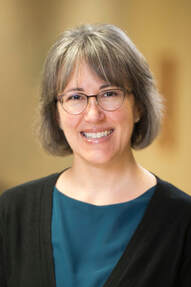 I’m pleased to have the opportunity to serve as senior warden at All Saints! I like to be involved in governance and have volunteered in several leadership roles to help plan and set direction. In my professional life, I have worked in communications and leadership development, mostly in the non-profit sector including a consultant trainer role with the Episcopal Diocese of Milwaukee and my current volunteer training & development job at Girl Scouts. I have a bachelor’s in public relations and a master’s in organization development. I look forward to seeing how the gifts of the Spirit will continue to manifest in our congregation. We are a talented and dedicated crew, committed to this parish and one another. Reach out to me anytime with your ideas for our church! At home, I live with my husband, Mike, and our children Meredith (freshman at Fox Valley Technical College) and Henry (junior at East High), and two cats. Our family travels to Iowa and Minnesota regularly to see relatives. I love sleeping in, practicing yoga, reading Jane Austen novels, and visiting Door County. 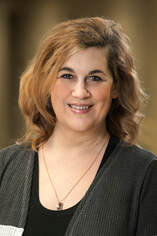 Hi, I’m Erin Hunsader - your new Junior Warden. Although I’m new to All Saints, I have been an Episcopalian for over 10 years and was received into the church in 2015 by Bishop Matt (at St. Anne’s in DePere). I attend the 10:30 service and just wanted to introduce myself to anyone I haven’t met yet. Please feel free to email me with any Junior Warden issues/concerns. I already have a list LOL. My email is [email protected]. I look forward to serving the church in this position. 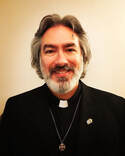 My dear family in Christ, We have now had five parish forums* where we’ve presented a proposed vision for All Saints as developed by the Vestry and me last year ~ three in person forums and two via Zoom. *The sixth and (likely) final forum will be held via Zoom on Monday, March 13, at 6:30 p.m. I’m writing to you today to address some questions that have come up over the past several weeks. My hope is that we can go into this next forum with a bit more clarity about what exactly we're doing and why, and that answering those questions will help us find a greater sense of purpose moving forward. So, what exactly is this whole … thing … that we’re doing? Well, in a nutshell: We’re trying to figure out, as a community (a family) of Jesus-followers, exactly who we are. More specifically, we’re discerning what God is calling All Saints Church to be, in this place at this time ~ to envision All Saints as God would have us be. The visioning process is all about discovering our identity as the Body of Christ in Appleton, WI, in 2023 and beyond. Last year, the Vestry and I discerned that God is calling our parish to be 1) Christian, 2) Episcopalian, and 3) Affirming. But why do this vision/identity stuff, when we’ve got bigger fish to fry? Don’t we need to get busy and actually take action, actually do something? Fair points, but here’s the thing: we need to tease apart our vision from our mission. Our vision is the identity God is calling us into; our mission is the work that God is assigning us to do. In some of our messaging thus far, I think those two different ideas have gotten blurred together, and that's creating some confusion and frustration. We need to keep them separate in our thinking, or else we won’t have real clarity about either one. And we have to clarify the identity (vision) first, because who we are called to be will determine the specific work that God is calling us to do. In other words, when we know whom God has called us to be, we will see clearly what God is calling us to do. So, what would it mean for our parish to be a Christian, Episcopal, and Affirming community? Being Christian, in this context, means embracing and teaching the core truths of the Christian faith as expressed in the Apostles’ and Nicene Creeds. But more importantly, it means making Jesus the center of everything we do as a parish community. It means that All Saints is first and foremost a church whose primary purpose is to worship God, particularly as we know God in Jesus Christ. Being Episcopal means embracing our Anglican-ness in our worship, our Sacraments, our role as an inseparable part of our diocese, the national Church, and the Worldwide Anglican Communion. It means that, while each of us individually might believe different things, we as a community hold to the doctrine, discipline, and worship of the Christian faith as we receive it from The Episcopal Church (see the Catechism, BCP p. 845ff). Notice how Point # 2 follows naturally from Point #1? There is a definite sequence to the proposed 3-point vision. It would make no sense to put Point # 2 first, or to remove Point # 1, because there’s no such thing as a “non-Christian Episcopalian”! So the order of the points matters. Especially because Point # 3 is the one that is, historically, most likely to be controversial… To be Affirming means to be more than merely tolerant of other people; it means more than merely being welcoming; it means embracing, supporting, and valuing each and every human being on Earth as the special creation of God Almighty who bears the holy imprint of the Divine Image, and in whom we are called and sworn to seek and serve Christ Our Lord. Point # 3, thus, flows directly from Point # 2, because it is in our specifically Episcopal sacrament of Baptism that we swear before God and the Church to adhere to the Baptismal Covenant (BCP, p. 304-5): Celebrant: Will you seek and serve Christ in all persons, loving your neighbor as yourself? People: I will, with God’s help. Celebrant: Will you strive for justice and peace among all people, and respect the dignity of every human being? People: I will, with God’s help. If we take our Episcopal Baptismal Covenant seriously (as we should!), we cannot have within our church community any “second class citizens” whom we allow in but do not fully embrace and support and value as complete and utter equals. And that goes for any categories that have been used to degrade, oppress, abuse, and/or marginalize particular groups of human beings: race, ethnicity, socio-economic status, education, gender identity, sexual orientation, &c. Now, everything I've said so far has been focused on our shared identity. On whom we’re called to be. What does any of that have to do with the work that God is calling us to do? Let me offer an example of how the one leads to the other: If we adopt and embrace the identity of being a Christian, Episcopal, and Affirming parish, then we will finally be in a position to do something that I’m told that Bishop Matt instructed us to do some seven years ago: namely, to make a formal decision as a parish about whether we will bless and solemnize same-gender marriages at All Saints. My friends, we are way overdue for making that decision. But I hope you see what I’m trying to clarify here: that we cannot possibly make such a decision (one way or the other) if we don’t first have a clear vision of who we are as a parish community. We have to sort out the identity question before we can tackle the action items. But if we embrace this proposed vision, then we immediately see, for example, our mission to the LGBTQA+ community, to the downtown Appleton community, to the Lawrence community, etc. And more importantly, we will then have the ability to build relationships with the people in those various communities, because we’ll be able to show them clearly and openly who we are. Every bit as importantly, we will be able to invite people to join our parish community, because we’ll be able to give people a clear vision of exactly what it is they’d be joining. That’s how we grow All Saints and build a community that will do more than just hang on, but will instead actually thrive and be a real source of light and refuge and healing and grace in a world that’s all too often very broken and dark for so many of God’s children. I urge you, my friends: please take advantage of the opportunity to participate in these crucially important conversations. If you're not able to attend the next forum ~ or if you just happen to be not comfortable discussing these topics in a group setting ~ please contact me (either through the church office or via my direct email & pastoral phone line). I would love to talk with each and every one of you, whether in groups or individually, whether publicly or confidentially. Thus far, the forum conversations have been overwhelmingly positive and engaging. People have expressed genuine excitement about what this vision of All Saints will mean for our future. People have also brought up wise questions and compelling insights about the challenges we might face moving forward and the factors we will need to address as a parish if we are to move forward in a healthy and life-giving way. But we have not heard from all of the voices in this parish, and we need to do so. Every one of you is a vital member of the Body of Christ. So please plan to log in to the next forum, especially if you haven't attended one yet; or if you're not able to attend or you're not comfortable attending, please get in touch with me and let's at least connect one-to-one. Yours always in Christ, C+ 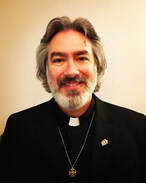 My dear family in Christ, It is with both great joy, and a little sadness, that I share with you the news that Erin Wolf, our Youth Minister for these past ten years, will be leaving that position this year at the end of December. While this change is significant both for Erin and for us, it is ultimately cause for much celebration: Erin has been offered the opportunity to step into a new role at the diocesan level as the first Youth Networking Coordinator. As she will also continue to serve as diocesan Camp Director, the new position—one created jointly by the dioceses of Fond du Lac and Milwaukee—will be full time. Obviously, therefore, her accepting the new position means that she cannot continue on part-time with us at All Saints. You may read the diocesan announcement here. 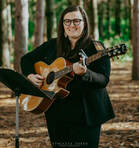 Erin has been deeply involved in the life, worship, and ministries of All Saints Church for more than a decade. It is impossible to quantify her impact upon our congregation, her guiding presence in the spiritual, emotional, and social growth of our children (and parents), and her contributions to this parish. Vestries, priests, and even bishops have come and gone during her tenure with All Saints, and her moving into this next, exciting chapter of her life in professional ministry marks, in many ways, the end of an era for us. It’s perfectly natural for us to be saddened by such a big change… But y’all, I’ve seen the job description for the position the two dioceses have created, and in my opinion it fits Erin’s particular gifts, abilities, and vocation to a “T”; it is a once-in-a-lifetime opportunity that anyone in her place would be wise to take. God is at work amongst us here in Wisconsin, and great things are afoot. Please therefore join me in congratulating Erin on this incredible opportunity, celebrating her generous service to our parish, and rejoicing in what the Lord is doing for, with, and within God’s one, holy, catholic, and apostolic Church. We are blessed to have some time, during this season of Advent, to celebrate Erin’s ministry here with us, to thank her for her service, and to share with her in the joyful anticipation of a brand new chapter that’s about to begin. Advent, after all, is all about reflection and preparation and gratitude for all that God has given us. So this is a perfect time to give thanks for what we’ve had and to look expectantly to the good things that are to come. Erin, the words don’t begin to cover it, but THANK YOU! Between now and the end of the year, we will find additional ways to express our gratitude and our congratulations ~ well done, good and faithful servant! Blessings, Christopher+ & All Saints Episcopal Church 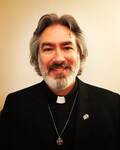 My dear friends in Christ, In my last newsletter message, I presented a vision for our parish, a vision of who we are as a worshipping community, of who and what we could be, of where the Vestry has discerned, and I myself believe, that God is calling us to go and what God is calling us to become. At the time, I asked for everyone to get in touch either with the church office or with me directly to share your thoughts, concerns, questions, hopes, and/or fears about the proposed direction for the development and growth of All Saints coming out of (what is hopefully) the worst of the pandemic. We are now at the point of action: it’s time to begin implementing the vision that the Vestry and I have been discerning. If you have any significant concerns about, or objections to, our moving forward with this vision, please call (920-266-9262), text, or email me as soon as you can. Our proposed vision, once again, is that All Saints ought to strive to be theologically orthodox, unapologetically Anglican/Episcopal, and unequivocally inclusive/affirming of all persons, regardless of race, ethnicity, gender identity, sexual orientation, economic status, or cultural background. Here is a breakdown of what we mean by each of those three points:
These three points will, if faithfully embraced, become the defining characteristics of who we are as a worshipping community of Jesus followers and aspiring disciples as we seek to be the Body of Christ in our particular corner of God’s Creation. I believe all three are Scripturally mandated, theologically imperative, and thoroughly rooted in our Baptismal Covenant. But again, if you have concerns, questions, and/or possible objections to any or all of these goals for our parish, please contact me as soon as you can ~ I absolutely want to hear from you. Of course, you’re welcome to call or write to voice your support, as well. Either way, I truly want and hope to hear from y’all about all this. Hit me up and let’s talk about it! Peace & blessings, Christopher+ 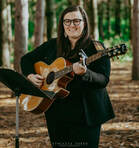 Greetings, y’all! FALL LOCK-IN registration is live! This diocesan-sponsored event is open to those in grades 6-12 and will be held November 18-20, 2022, at Waypost Camp (site of EpiscoWisco Camp 2021-2022). CLICK HERE to sign up today – space is very limited. Cost is $40/person thanks to diocesan support and a very generous bequest to support youth ministry. Contact the Diocesan Office at 920-830-8866 if further financial support is needed. ACOLYTE TRAINING will be available for youth & adults interested in joining this ministry! There will be two opportunities to join in – this Sunday, October 16 at Noon and again Sunday, November 6 at Noon. Contact Fr. Christopher HERE for more information. TERMINATOR NIGHT: Calling all students in grades 6-12 & adult leaders! This fun game night, sponsored by St. Thomas, Menasha, is BACK!! Free to attend and friends are always welcome. We’ll be gathering at St. Thomas from 5-7pm (pizza dinner included) on Sunday, November 6 for a night of lots of fun running around the church in a tag-type game with squirt bottles. Please let Erin know if you’re coming ASAP – [email protected]. YOUTH MINISTRY SCHEDULES can be found on the Calendars page of the Youth Ministry website. This is the best way to keep up with gatherings & upcoming events at All Saints outside of newsletter updates and the Weekly Update email list. SUNDAY SCHOOL (grades 4K-12) continues to meet both in-person and virtually via Zoom on Sunday mornings from 9:30-10:15am. Families are welcome to attend the class that best fits their circumstances. YOUTH GROUP (grades 5-12) continues tonight, Wednesday, October 12. We will start in the Youth Room and move to Kemper Hall. COVID-19 & MASKING: Regarding masking, our current protocols for any All Saints Youth Ministry events follow Outagamie & city of Appleton community levels:
We still need adult assistance with Sunday School & Youth Group – please contact Erin Wolf at [email protected] for more information. 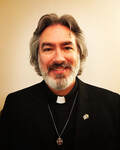 UPDATE TO ALL SAINTS COVID POLICIES as of 5 October 2022 My dear friends in Christ, Since the beginning of “Corona-tide,” we here at All Saints have taken a cautious and conservative approach to Covid safety policies, and we shall continue to do so, going forward. The Covid pandemic, after all, is most certainly not over. At this point, however, rather than setting a single set of policies “in stone,” as it were, we will be using the risk levels assessed by medical experts and published by local, county, and state authorities to determine the particular precautions we will require:
We remain fully committed to providing as many options and alternatives as possible for folks to engage not only with our worship but also with our community of faith in ways that feel comfortable, welcoming, inclusive, and safe. And we hope that our online/digital ministries will continue to grow and expand, even as we (also hopefully) continue to open up more and more fully for in-person gatherings. If you have any questions or concerns about these adjustments to our policies, please contact me via phone (920-266-9262) or email, or through the church office ~ I will be more than happy to converse with you, and I most certainly want to hear your thoughts as we work together to chart a way forward for All Saints Episcopal Church. Peace & blessings, Christopher+ 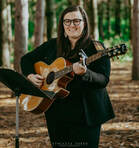 Greetings to all! FALL 2022 YOUTH MINISTRY SCHEDULE: Schedules and registration forms for Youth Ministry programs are live on the Calendars page of the Youth Ministry website. They have also been sent out via the Youth Ministry Weekly Update email list. Please contact Erin to be added to this list. Sunday School (grades 4K-12) has resumed and is offering classes both in-person and virtually via Zoom. Families are welcome to attend the class that best fits their circumstances. Youth Group (grades 5-12) resumes tonight, Wednesday, September 14. Regarding masking, we have been given the green light to adopt a system similar to what we did with diocesan camp this summer, but using Outagamie County & local COVID levels as our metrics:
We still need adult assistance with Sunday School & Youth Group – please contact Erin Wolf at [email protected] for more information. SAVE THE DATE: The Diocesan Youth Fall Lock-In will be held November 18-20 at Waypost Camp (weekend before Thanksgiving). This overnight retreat-type event is open to students who will be in grades 6-12 for the 2022-2023 academic year. Registration will open ASAP – stay tuned! 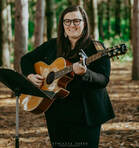 Greetings to all! LET’S CELEBRATE! will return in the September 28 newsletter. For those wishing to participate, please send in your moments of joy and celebration to Erin at [email protected] by Tuesday, September 27. FALL 2022 YOUTH MINISTRY SCHEDULE: Schedules and registration forms for Youth Ministry programs are now live on the Calendars page of the Youth Ministry website. They have also been sent out via the Youth Ministry Weekly Update email list. Please contact Erin to be added to this list. Re: Registration Forms: Please fill out only ONE Registration/Media Consent Form per family. It's important that I have accurate and up-to-date records on file. Parents can return forms either digitally via email or in-person at church. If there are any questions, please ask. Thank you! Sunday School (grades 4K-12) has resumed and is offering classes both in-person and virtually via Zoom. Families are welcome to attend the class that best fits their circumstances. Needed: at least 2 more adults to teach (at least 1 more per class) Times & Location: Sundays, 9:30-10:15am, Undercroft/Kemper Hall (downstairs) & Zoom Youth Group (grades 5-12) resumes tonight, Wednesday, September 14. Regarding masking, we have been given the green light to adopt a system similar to what we did with diocesan camp this summer, but using Outagamie County & local COVID levels as our metrics:
Needed: 1-2 other adults to assist for both practical and Safeguarding purposes Times & Location: Wednesdays, 6:30-8:00pm, Undercroft/Kemper Hall (downstairs); Zoom if needed for weather or extenuating circumstances. SAVE THE DATE: The Diocesan Youth Fall Lock-In will be held November 18-20 at Waypost Camp (weekend before Thanksgiving). This overnight retreat-type event is open to students who will be in grades 6-12 for the 2022-2023 academic year. It is hoped that registration will be open by next week. |
Click here for the latest parish newsletter:
Categories
All
|